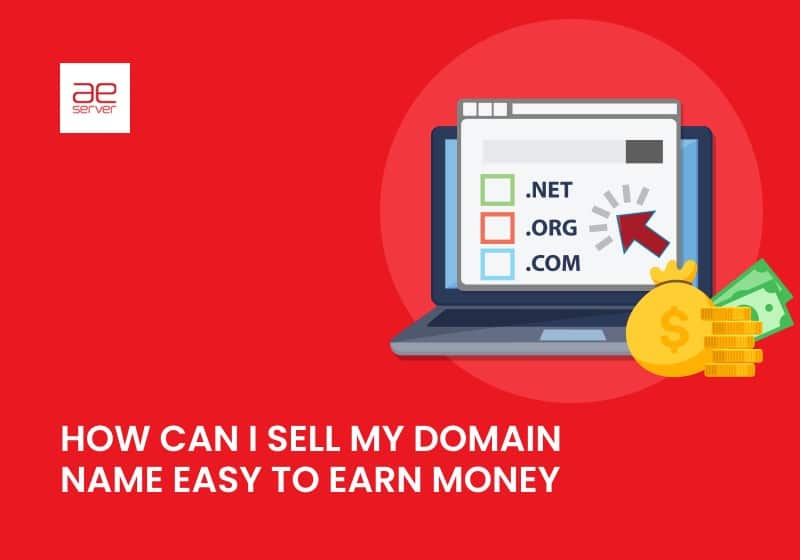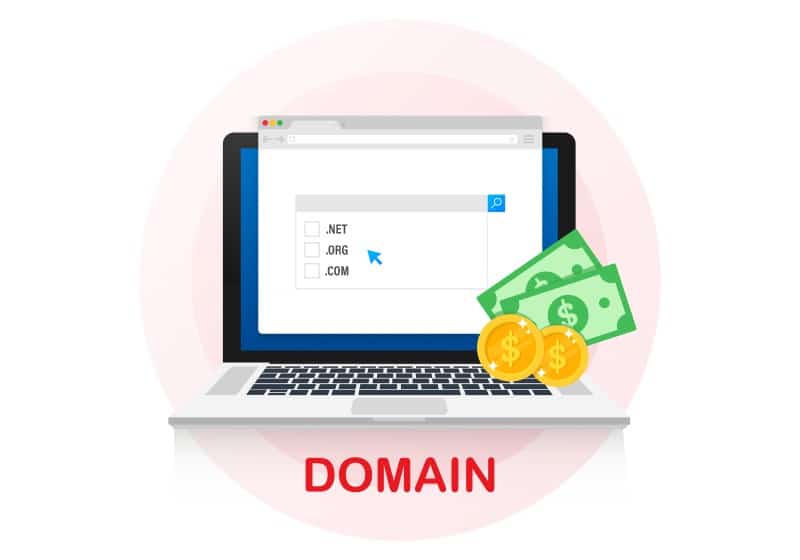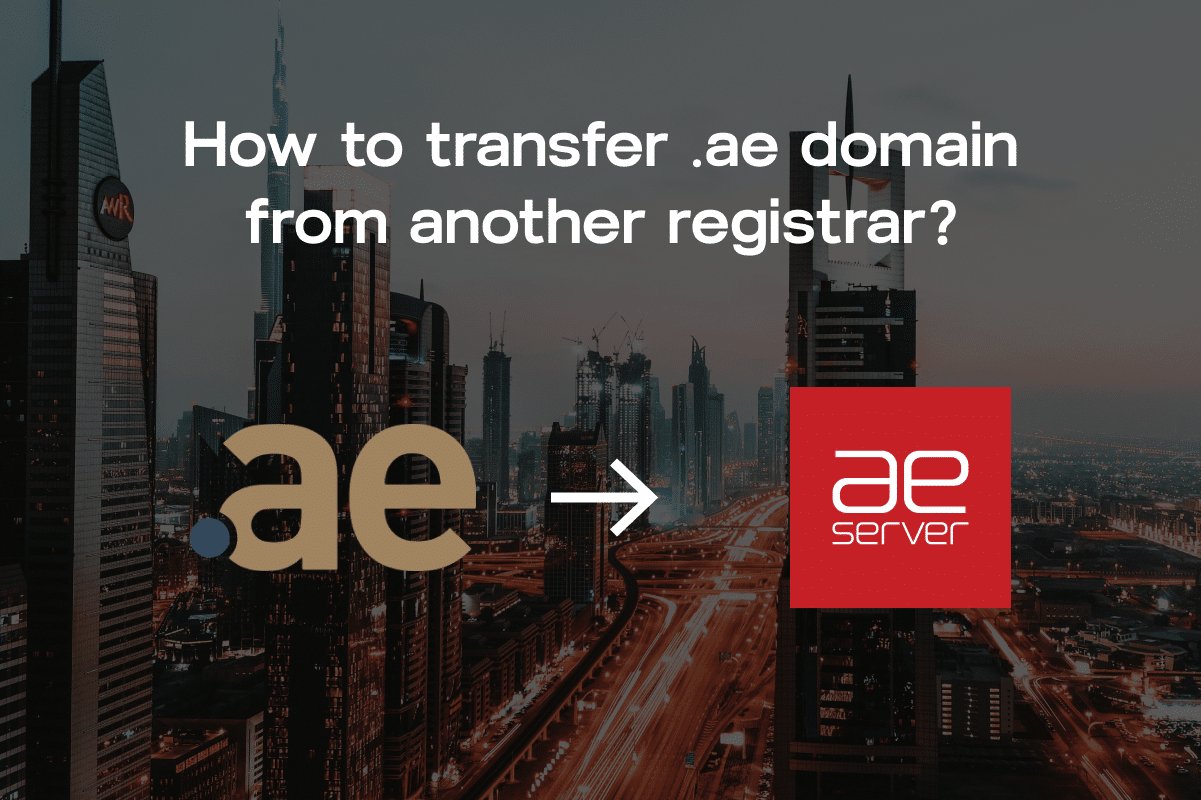
How Can I Sell My Domain Name Easy to Earn Money in UAE
In the digital world, domain names have evolved beyond mere online addresses. They have become valuable digital assets, ripe for buying, selling, and trading. The question that often arises is, “How can I sell my domain name easily to earn money?” This has been a very hot topic for domain name investors in Dubai, the UAE and the Middle East region according to the stats and numbers seen at conferences such as Domain Days Dubai 2023/2024.
Preparing Your Domain for Sale
It’s essential to ensure your digital asset is in the best possible condition. It’s to attract potential buyers:
- Domain Appraisal. One of the critical initial steps is determining the value of your domain. Several online tools and professional appraisers can assist you in evaluating factors. They’re domain length, keywords, and current market trends. A realistic appraisal serves as the foundation for a successful sale. It helps you set a competitive yet reasonable asking price.
- Renewal and Maintenance. Neglecting the renewal of your domain name registration can significantly impact its perceived value when reselling. Ensure your domain registration is up to date. A domain on the verge of expiration or already expired may be less valuable. Regularly update and maintain your domain. It enhances its perceived worth and attractiveness to potential buyers.
- Clean Up Your Website (If Applicable). Your domain may be associated with a website. Then, its condition can influence potential buyers. A well-maintained website linked to the domain can add significant appeal. Ensure that the website is free of errors, up to date, and reflects positively on the value of the domain.
Pricing Strategy to Sell Domain
Determining the right price is a nuanced process in reselling a domain name that requires a strategic approach:
- Research Comparable Sales. Conduct thorough research on recent sales of domains like yours. This investigation provides insights into market trends and pricing benchmarks. Understanding what buyers are willing to pay for domains with similar attributes is essential. It sets a competitive and attractive price for your own. A great resource to find out how much a domain name/keyword got sold for is namebio.com
- Consider Domain Age and History. Older domains often command higher prices. It’s especially if they come with a clean history. Highlight any significant history or achievements associated with site name during domain reselling. It’s to add perceived value. Buyers may be willing to pay a premium for a domain with a noteworthy background.
- Evaluate Potential ROI. Put yourself in the buyer’s shoes and assess the potential return on investment. Buyers may be more inclined to pay a premium if a domain has strategic value. Clearly communicate the benefits and future potential of owning your domain.

Ways to Sell Your Domain
In the realm of digital real estate, diverse avenues beckon for those seeking to sell their domain names. Each presents a unique array of advantages and considerations.
The landscape of domain reselling is as dynamic as the virtual space it inhabits. It offers sellers the opportunity to navigate a multiple domain names and strategies.
Sellers are met with a spectrum of choices. Each is tailored to cater to different needs and preferences. The decision to sell a domain is not merely a transaction. It’s a strategic journey. There, selecting the right avenue plays a pivotal role in determining success.
Understanding these diverse options empowers domain sellers to make informed choices. It maximizes their potential for success in the ever-evolving marketplace.
Domain Name Broker
Using a broker can simplify the domain reselling process. And it increases your chances of finding the right buyer:
1. Benefits of Domain Brokers:
Expertise. Domain brokers have specialized experience in negotiating and closing domain sales. It can be especially valuable if you are new to the process.
Networking. Brokers often have an extensive network of potential buyers. It increases the visibility of your domain.
Valuation Help. Brokers provide valuable insights to help determine a fair market value for a domain auction. It ensures you don’t undersell your assets.
AEserver offerers a premium domain name brokerage services in Dubai/UAE and allows you to buy & sell domain names efficiently and taking care of the money transfer and domain name transfer.
2. Considerations:
Fees. It’s essential to be aware that domain brokers typically charge a percentage of the sale. This fee is an investment. But it’s crucial to factor it into your profit expectations.
Exclusive Agreements. Some brokers may need exclusive rights to sell your domain. Check the terms carefully. And consider the potential benefits of exclusivity versus many avenues of sale.
Global domain name brokers and AEserver in Dubai usually charges 10-20% of the total closing fee however the final fee depends on many factors such as minimum transaction costs, cross border fees, etc
Domain Auction
Auctions can be an effective way to quickly sell your domain to the highest bidder:
1. Popular Auction Platforms:
GoDaddy Auctions (also known as DAN). A well-known platform that attracts a wide range of buyers.
NameJet. Specializing in expiring and deleted domain names, it’s a popular choice for auctions.
Flippa. Known for a variety of digital asset auctions, including domains, websites, and apps.
2. Advantages of Domain Auctions:
Quick Sale. Auctions have set timelines, ensuring a relatively quick sale compared to other methods.
Competitive Bidding. The auction format can lead to competitive bidding. It potentially drives up the selling price of your domain.
3. Considerations:
Reserve Price. Set a realistic reserve price to ensure you don’t sell the domain for less than its perceived value. At the same time, be mindful not to set it too high, deterring potential bidders.
Auction Fees. Different domain auction platforms have varying fee structures. Be aware of any fees associated with listing and selling through the chosen platform.
What to Consider when Choosing the Right Platform to Sell Your Domain in Dubai, UAE
Selecting the right platform is a crucial decision. It significantly influences the success of your domain sale:
1. Domain Marketplaces:
Sedo. A well-established marketplace with a large user base. It facilitates both the buying and selling of domain names.
Afternic. Integrated with major registrars like GoDaddy, Afternic offers a streamlined process for selling.
Dan.com. Known for its user-friendly interface, Dan.com simplifies the buying and selling experience. Most of these platforms support users from the Middle East, GCC and Dubai, UAE.
2. Considerations When Choosing a Platform:
Target Audience. Different platforms cater to various niches or industries. Choose a platform that aligns with the domain’s characteristics and the interests of TA.
Fees. Be aware of any listing or transaction fees associated with the platform when reselling a domain. Some platforms may charge a flat fee. But others may take a percentage of the sale price.
Ease of Use. Opt for platforms with user-friendly interfaces and efficient processes. A platform that makes it easy to find and buy your domain can significantly impact the speed of the sale.
Marketing Strategies for Your Domain Sale
Effectively marketing your domain is essential. It’s for attracting potential buyers and generating interest in your offering:
- Create a Professional Listing. Craft a compelling and professional listing. It must showcase the unique selling points of your domain name. Provide comprehensive information. It includes the domain’s history, potential uses, and any associated website traffic. A well-structured listing increases the likelihood of capturing the attention of serious buyers.
- Use Social Media. Leverage the power of social media to expand the reach of your domain listing. Share your listing on relevant groups, forums, and communities. They must be related to your domain’s niche. Engage with potential buyers and answer questions promptly to build trust and credibility.
- Reach Out to Potential Buyers. Don’t wait for buyers to come to you. Actively approach potential buyers in your domain’s industry. A targeted outreach strategy can yield positive results. It’s especially true if your business domain name aligns with their goals.
Tips for Selling Domain Names for Profit
Maximize your chances of reselling domain names for a profit with these extra tips:
- Negotiation Skills. Develop and hone your negotiation skills. Successful negotiations can lead to a more favorable outcome for both parties. Be open to discussions and understand the buyer’s perspective. Also, find a middle ground that benefits everyone. Being flexible in negotiations can often result in a better deal.
- Patience is Key. Selling a domain can be a time-consuming process. Patience is crucial. Wait for the right buyer who recognizes the true value of your domain. Rushing the process may lead to underselling, impacting your potential profit. Keep in mind that the right buyer might take time to emerge.
- Document Everything. Maintain thorough documentation throughout the domain reselling process. Keep records of any communication, agreements, and transactions. Clear documentation not only provides a transparent record. But it also serves as a safeguard against potential disputes. This is especially important when dealing with higher-value domains.
- Stay Informed. Stay abreast of industry trends, popular keywords, and emerging technologies. Regularly update your knowledge to understand what potential buyers might be looking for. This information can help you position your domain as a valuable asset in a dynamic market. It makes it more appealing to a broader range of buyers.
Mistakes People Make When Selling Domain Name
Domain reselling can be a lucrative venture if approached strategically. But many fall victim to common mistakes. Those can hinder the sale process and potentially lead to underselling. Here are eight prevalent errors to avoid when selling a domain name:
- Overpricing. Setting an unrealistic or overly ambitious price tag is a common blunder. It’s natural to want the maximum return on investment. But an excessively high asking price can scare away potential buyers. It’s crucial to conduct thorough research on comparable sales and market trends. It’s to determine a fair and competitive price.
- Neglecting Domain Appraisal. Failing to assess the true value of a domain is a critical oversight. A realistic appraisal forms the basis for a successful sale. And it ensures the pricing aligns with the domain’s actual worth.
- Ignoring Renewal Dates. Letting a domain name expire or selling one on the verge of end impacts its perceived value. Buyers may hesitate to invest in a domain that requires immediate renewal. Ensure that your domain registration is up to date to maintain its marketability.
- Poor Presentation. A lackluster or unprofessional presentation can significantly diminish a domain’s appeal. Incomplete or inaccurate information and inadequate marketing efforts can deter potential buyers. A well-crafted, detailed presentation can enhance the perceived value of the domain.
- Exclusivity Agreements with Brokers. Domain brokers can be beneficial. But signing exclusive agreements with them might limit your options. Exclusive arrangements can restrict your ability to explore other domain reselling avenues. Carefully review broker agreements and consider non-exclusive arrangements to maximize your reach.
- Ignoring Marketing Strategies. Neglecting effective marketing strategies is a common mistake. A lack of online visibility, social media promotion, and targeted outreach can result in a limited pool of buyers. Use various marketing channels to increase exposure and attract the right audience.
- Failing to Negotiate Effectively. Poor negotiation skills or inflexibility can lead to missed opportunities. Be open to discussions. Understand the buyer’s perspective and strive for a mutually beneficial agreement. Overly rigid negotiation can lead to a breakdown in communication and a failed sale.
- Lack of Patience: Domain reselling is not an instant process. Impatience and rushing the sale can result in underselling. Waiting for the right buyer who recognizes the domain’s value is essential. Exercise patience and remain committed to achieving a fair deal.
Mistakes People Make when Selling Site Name
When selling a domain name, avoiding common mistakes is crucial. It’s to ensure a successful and profitable transaction. Here are six mistakes that people often make when selling a site name:
- Incorrect Pricing. Setting an inaccurate or inflated price can discourage potential buyers. Researching and valuing the domain based on market and comparable sales is essential.
- Poor Marketing Strategy. Neglecting effective marketing during domain reselling can limit exposure. And it reduces the chances of finding the right buyer. Utilizing various platforms and strategies to reach a broader audience is essential.
- Neglecting Domain History. Failing to provide a transparent history of the domain can erode buyer trust and hinder the sale.
- Ignoring Negotiation Skills. Ineffective negotiation can lead to missed opportunities or unfavorable deals. Developing strong negotiation skills and being open to compromise is crucial.
- Lack of Documentation. Incomplete or unclear documentation about the domain’s registration, ownership, and any associated assets can create obstacles. Providing comprehensive and accurate documentation is vital.
- Ignoring Legal Considerations. Some neglect legal aspects during reselling domain names. They’re trademarks, copyrights, or potential disputes. It can result in legal issues post-sale. Conducting thorough legal due diligence and addressing any concerns beforehand is essential.
AEserver’s Verdict
Selling your domain name to earn money is a nuanced process. It needs a strategic approach, attention to detail, and a good understanding of the market.
Whether you choose to work with a domain broker, take part in an auction, or list your domain on a marketplace, the key is to approach the sale with a well-prepared and informed strategy.
In summary, begin by thoroughly preparing your domain for sale. Ensure it is in the best possible condition to attract potential buyers. Price your domain strategically by researching comparable sales. Consider its age and history and check its potential return on investment. Choose the right avenue for selling. Be it through a domain broker or an auction platform. And consider the advantages and potential drawbacks of each.
Reach out to our UAE based domain name experts for best support and advice on premium domain names.



